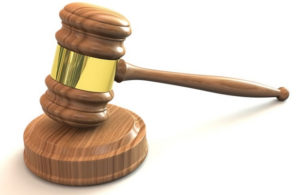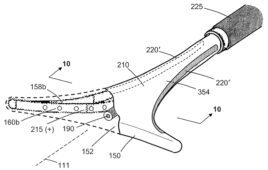 The U.S. Supreme Court ruled today that Patent Trial and Appeal Board judges are unconstitutionally appointed, but that greater supervision by the PTAB director would solve the problem.
The U.S. Supreme Court ruled today that Patent Trial and Appeal Board judges are unconstitutionally appointed, but that greater supervision by the PTAB director would solve the problem.
The opinion in the case followed a 2019 appeals court ruling in the closely watched patent spat between Arthrex and Smith+Nephew (NYSE:SNN). In the original lawsuit, Smith+Nephew and ArthroCare (which Smith+Nephew acquired in 2014) petitioned for inter partes review of a patent secured by Arthrex. Three patent judges concluded that the patent was invalid.
Arthrex appealed, claiming that the structure of the PTAB violated the appointments clause of the U.S. Constitution, which specifies how a president may appoint officers to assist in carrying out their duties. The law that was in effect at the time prohibited the PTAB director from reviewing decisions made by administrative patent judges (APJs).
The high court justices decided today that APJs must at some level be subject to the direction and supervision of an officer nominated by the president and confirmed by the Senate — the PTAB director.
“The Constitution therefore forbids the enforcement of statutory restrictions on the Director that insulate the decisions of APJs from his direction and supervision,” chief justice John Roberts wrote in the majority opinion. “To be clear, the Director need not review every decision of the
PTAB. What matters is that the Director have the discretion to review decisions rendered by APJs. In this way, the President remains responsible for the exercise of executive power — and through him, the exercise of executive power remains accountable to the people.”
The justices vacated the judgment of the U.S. Federal Circuit Court of Appeals in Washington, D.C., and sent Smith+Nephew’s original petition to the PTAB acting director for him to decide whether to rehear it. However, Arthrex is not entitled to a hearing before a new panel of patent judges, Roberts wrote.
“Arthrex is proud that a majority of the Supreme Court agreed with our position regarding the unconstitutionality of the process for oversight of decisions by administrative patent judges,” said John Schmieding, SVP and general counsel for Arthrex, said in an email to Medical Design & Outsourcing. “This is another step to ensure that patent property rights are reviewed under a constitutionally fair process, and Arthrex is honored to have had the opportunity to fight for the Constitution.”
Smith +Nephew did not immediately reply to a request for comment.
Minneapolis intellectual property attorney Case Collard described today’s opinion as “a very limited remedy.”
“This limited remedy preserves the IPR (inter partes review) process as we know it, but adds a new wrinkle, allowing APJ decisions to be reviewed by the Director prior to appeal to the Federal Circuit,” said Collard, a partner at Dorsey & Whitney. “Patent challengers will be pleased with the result that keeps the PTAB’s IPR process in their toolbox. There is some concern that by allowing a political appointee to oversee the decisions, it could inject an element of politics that had previously been absent.”




